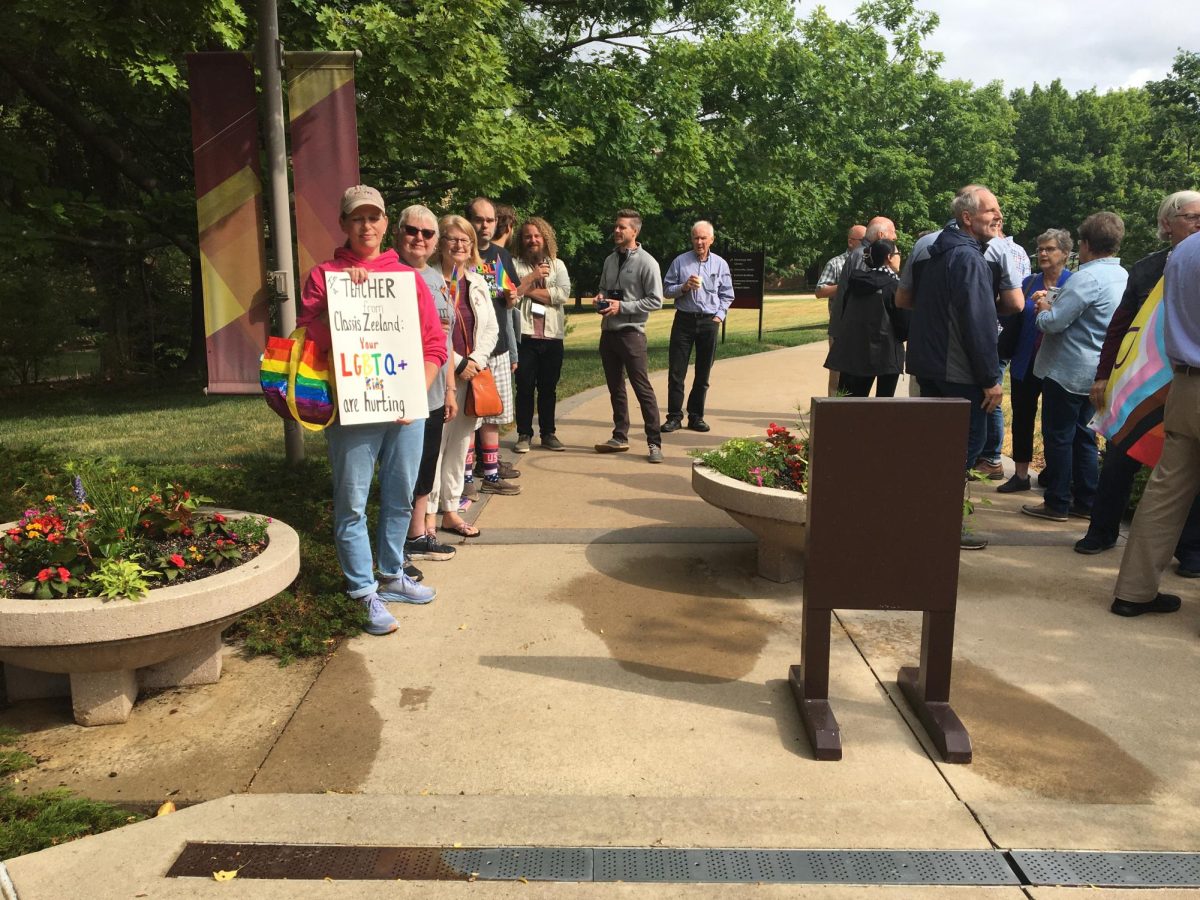Peter Rollins, an intellectual and in-demand author, and David Bazan, a musician, are two former evangelical Christians who have embraced doubtful and complicated postures toward religion. They will be appearing together onstage at the Ladies Literary Club on Sept. 23 to engage in music, Irish stories, conversations and questions.
To many commentators, it seems as though the evangelical church in the U.S. is at a point of crisis. Membership in most churches is declining, due in part to many white youth in the so-called millennial generation disaffiliating in large numbers. Along with a perceived collapse in the power of the right-wing Christian to win elections for the Republican Party (see “Rise of the Christian left in America,” The Atlantic), a conversation has sparked about the future of the church when the institution is increasingly decoupled from American culture.
Rollins, originally from Belfast, Northern Ireland, is a writer and radical theologian who’s gained attention and acclaim for his extensive public speaking tours. With an approach based in telling parables and challenging his audience’s expectations, he’s become one of the most compelling voices in the ongoing conversation about the future of the church.
His philosophical and intellectual framework derives from the thought of post-structuralist philosophers like Jacques Lacan and Slavoj Zizek, and his work is situated within the tradition of death of God theology typified by Thomas J.J. Altizer. This stream of theology is based on the kenosis, or self-emptying, of God into the world through Jesus’ incarnation and death. He calls for Christians to experience this self-emptying existentially and to see in Jesus a better way to transcend sets of beliefs and identity markers. To further his goals, he has also founded intentional communities like ikon, which describes itself as “iconic, apocalyptic, heretical, emerging and failing.”
Bazan, originally from Seattle, has been described by critic Jessica Hopper as “Christian indie rock’s first big crossover success.” As early as the late 1990s, his band, Pedro the Lion, was featured in secular and Christian publications alike, earning strong reviews from websites such as Pitchfork and Allmusic. In 2006, Bazen dissolved his band and began recording under his own name, simultaneously breaking up with Christianity and struggling with alcohol abuse.
Ever since, however, he has continued to tour at Christian music festivals and colleges like Calvin, where he last performed in Nov. 2011. Currently self-identifying as an agnostic, he still maintains a complicated connection to his former faith. During an interview with Hopper, he said this:
“The last 30 years [of the evangelical movement] have been hijacked; the boomer evangelicals, they were seduced in the most embarrassing and scandalous way into a social, political and economical posture that is the antithesis of Jesus’ teaching.” If analysis of the frantic exodus of youth from Christianity is to be believed, many young church-goers are feeling the same way.
Both of these men work outside of mainstream Christianity but retain a high degree of influence in that sphere. Bazan has retained some of his old Christian fan base and continues to perform in Christian venues, though to a much lesser extent. Meanwhile, Rollins has distanced himself from the so-called “emerging church” movement, though his writings and talks are quite popular with those who remain part of that movement. He has, for instance, spoken at Mars Hill Bible Church in Grand Rapids on more than one occasion.
It is the pairing of Rollins and Bazan that makes the Sept. 23 event such a promising one. Both men are deeply critical of status quo Christianity, and each can be expected to bring his rigorous, animated and creative critiques to every public engagement.






